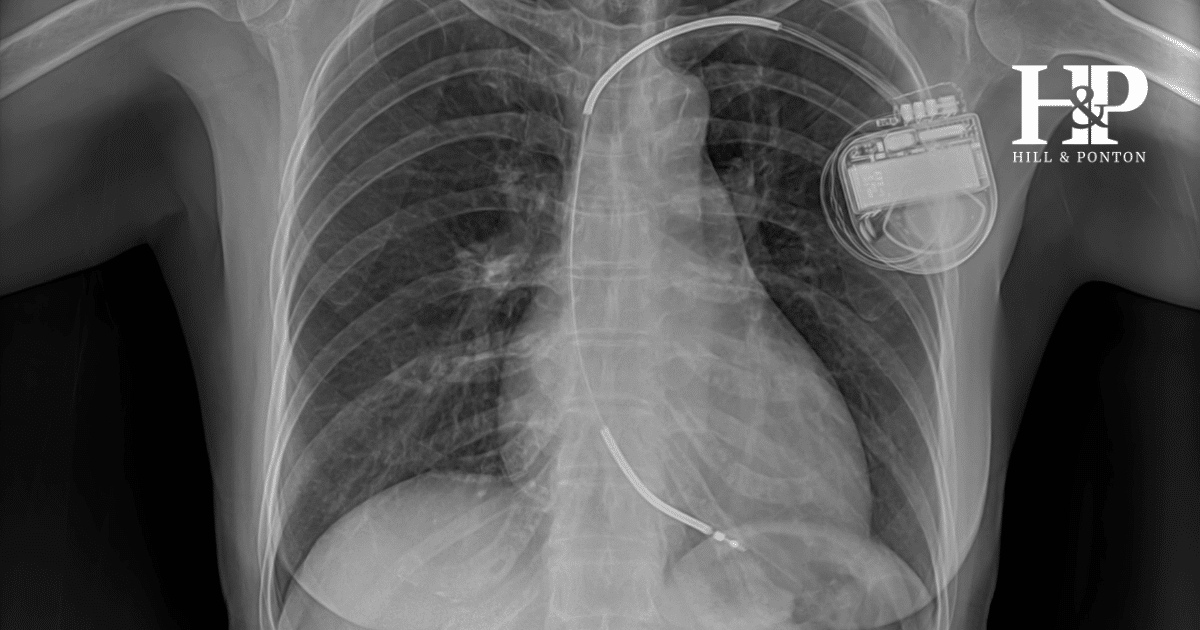The VA assigns disability ratings based on the severity of a veteran’s condition and how it affects their ability to function. For a pacemaker, the VA will typically rate this under diagnostic code 7018 for implantable cardiac pacemakers. Find out below when a veteran gets 100% VA disability with a pacemaker and defibrillator.
What Is the VA Rating for Pacemakers?
Under the diagnostic code 7018, the VA will assign a 100% disability rating for:
- The initial placement of the pacemaker and the first 1 month following hospital discharge
- Any time the pacemaker or electrodes require replacement
After the initial, temporary 100% VA rating, VA will assign a minimum 10% disability rating for as long as the pacemaker remains implanted:
- 10% for 7-10 METs
- 30% for 5.1-7 METs
- 60% for 3.1-5 METs
- 100% for 3 METs or less
Get Help With Your VA Disability Claim
Pacemakers and Agent Orange Exposure
For veterans who were exposed to Agent Orange during their military service, there may be a connection between that exposure and the need for a pacemaker later in life.
Certain heart conditions, including heart block, have been linked to Agent Orange exposure. Heart block is a type of abnormal heart rhythm that can require the implantation of a pacemaker to regulate the heartbeat.
If a veteran can prove that their need for a pacemaker is due to a heart condition caused by Agent Orange exposure, they may be able to receive service-connected disability benefits for that condition. This can lead to a higher disability rating and increased monthly compensation.
Our team of VA-accredited attorneys can help you navigate the claims process and ensure you receive the maximum compensation you’re entitled to.
Implantable Cardiac Defibrillators VA Rating and Benefits
Similar to a pacemaker, an ICD monitors the heart’s rhythm and delivers a shock when it detects an abnormal heartbeat, helping to restore a normal rhythm.
Veterans with an ICD are entitled to a 100% disability rating for the entire time they have the device implanted.
This 100% rating for cardiac defibrillators means comprehensive healthcare coverage and compensation for the veteran, who may also be entitled to additional benefits.
Example: How a Veteran Won Special Monthly Compensation
The veteran had active duty service from 1968 to 1974, and from 1985 to 1999. He appealed the rating assigned for his service-connected cardiac disability, which included implantation of an automatic implantable cardioverter-defibrillator (AICD), status post heart block with pacemaker and atrial fibrillation.
Initially, the Veteran was assigned a 30% rating for this cardiac disability for a period from 2009 through 2016. On appeal, the Board found the Veteran’s cardiac disability warranted a 100% rating for this entire period. The evidence showed the Veteran’s disability was manifested by chronic congestive heart failure and a workload of only 1-3 METs, resulting in dyspnea and fatigue.
The Board also found the Veteran was entitled to special monthly compensation (SMC) for statutory housebound benefits for the period from 2008 to February 5, 2016. This was because he had a single disability rated at 100% and additional disabilities independently ratable at 60% or more.




